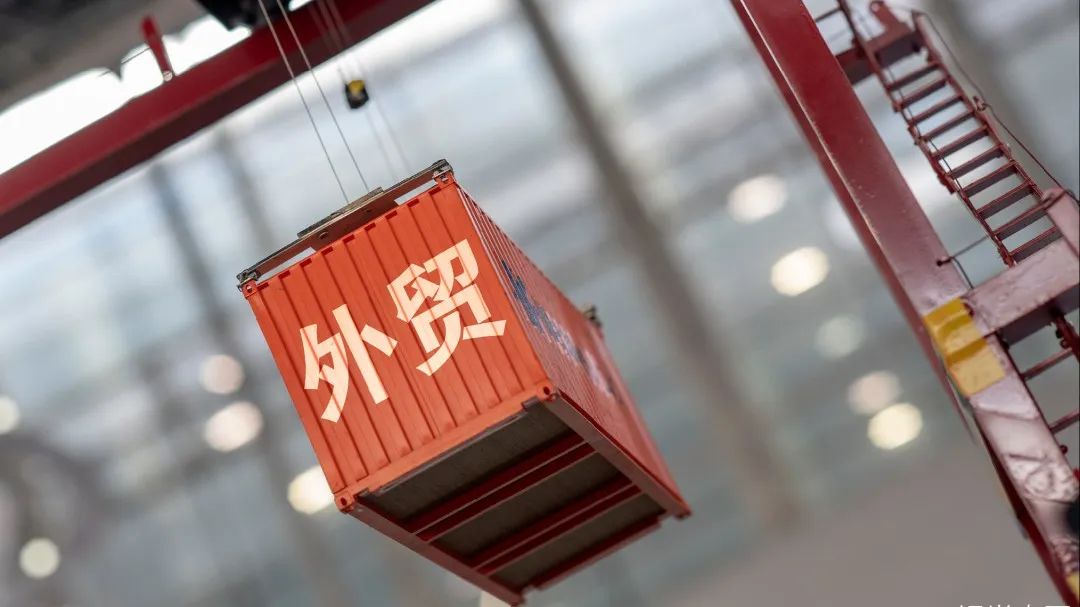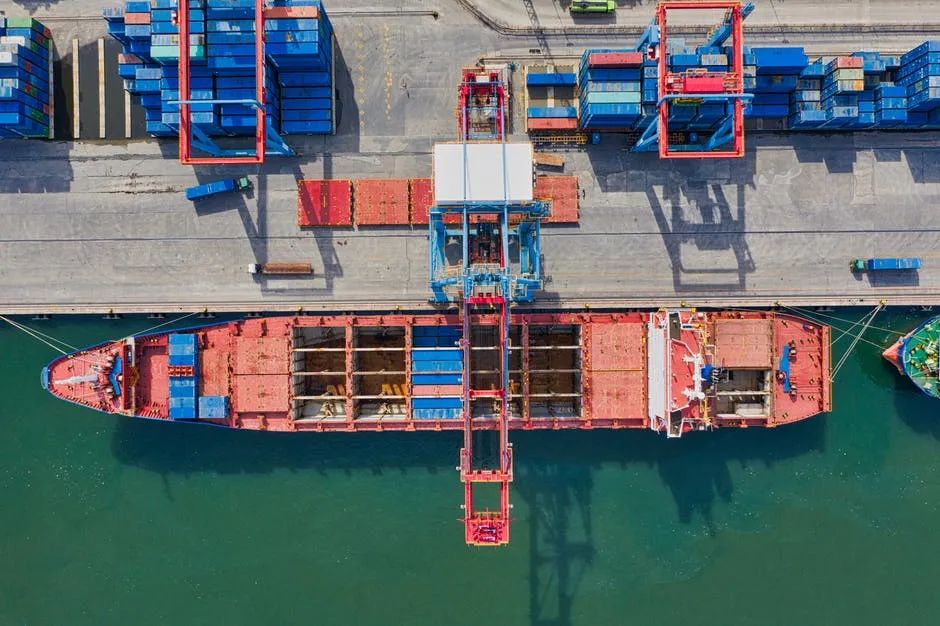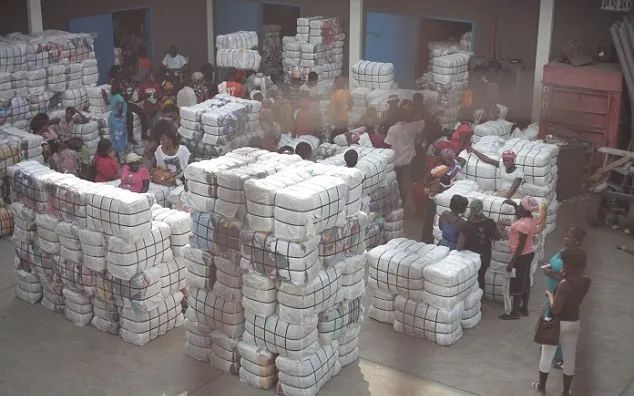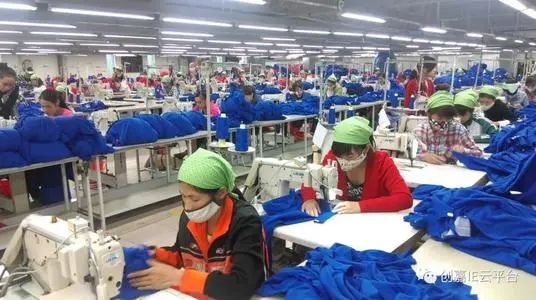Revelations! Textile and clothing foreign trade enterprises start the order defense war: bite the bullet and take loss orders! 40% of business was taken away by Vietnam |
| Time: 2022-06-11 View: 8834 Burst: |
|
"Foreign customers canceled their Christmas orders in October with a value of more than 100 million yuan because they found our 'spare tire' in Vietnam." Boss Chang reluctantly told reporters that this order accounted for the total business volume of Boss Chang's company. 40% of the volume was obtained by him from Indian manufacturers in 2017.
Boss Chang's company is located in a coastal city with a very developed private economy. It is a leading company in the production of local clothing. The products are mainly underwear for men and women, as well as clothing for babies under 2 years old. In the field of garment foreign trade, Boss Chang has been working for 23 years. At present, there are more than 2,000 employees in the factory, and downstream supporting enterprises with nearly 1,000 workers follow him to "eat". "Our overseas customers are mainly large supermarkets in the United States, Canada, and Australia, so the total plate is so big, either yours or mine." Boss Chang has been quite worried recently. In fact, this is only a microcosm of the outflow of a large number of domestic and foreign trade orders to the Southeast Asian market in recent years: they are currently facing many practical difficulties such as supply chain blockage and various costs continuing to rise. In this regard, the General Office of the State Council recently issued the "Opinions on Promoting the Stability and Quality Improvement of Foreign Trade", clearly proposing 13 policy measures to promote the smooth and smooth transportation of foreign trade goods. The Ministry of Commerce, together with 27 departments including the National Development and Reform Commission, the Ministry of Finance, the People's Bank of China, and the General Administration of Customs, has researched and issued a series of relevant policies and adopted specific measures to ensure the main body, the order, the market, the confidence, and the performance of the contract. "With the release of a series of policies to stabilize foreign trade, the local government has also conducted many investigations and listened to the opinions of entrepreneurs." Boss Chang said, these are good signs.
Rise to the challenge Since Boss Chang started his business, he has experienced the Asian financial crisis in 1997, the global financial crisis in 2008, and the global new crown epidemic that began in 2020. Regarding the previous two major crises, he said that not only was not affected, but the business volume has been greatly improved. According to his recollection: In 1997, China was in a period of vigorous development of foreign investment, and that time had little impact; in 2007, the price of raw materials rose considerably, which was difficult at first, even though the orders signed at that time had actually been There have been losses, but Chinese companies are very honest and guarantee the supply of goods to overseas customers. By 2008, these foreign customers had placed more orders in cooperative factories in China. By 2009, due to the decline in raw material prices And other reasons, the profits of Chinese enterprises are actually quite a lot. Taking boss Chang's company as an example, the business volume has increased by more than 20%. Even in 2020, because my country controlled the epidemic earlier, some orders originally produced in other countries in Southeast Asia flowed to Chinese garment foreign trade enterprises, so "life is still possible". But this year he felt a little pessimistic. In the communication with his peers, it is generally believed that the decline has not bottomed out. Mr. Cao, who works as an OEM for an international clothing brand, also encountered such a problem. Xiaocao's head office was established in the early 1990s and is a family business. She told reporters: "I have just gradually taken over in recent years. The status quo of increasing income without increasing income is very stressful. I realized that the speed of transformation must be accelerated." . According to data released by the General Administration of Customs on April 13, in the first quarter, my country's export value increased by 15.8% year-on-year, showing a significant slowdown compared to last year. The industry expects the growth rate in the second quarter to be about 8%. According to data released by the National Bureau of Statistics on April 30, the manufacturing purchasing managers' index (PMI) in April was 47.4%, down 2.1 percentage points from the previous month. Among them, the new export order index and the import index fell to 41.6 and 42.9 respectively, with a month-on-month decrease of 5.6 percentage points and 4 percentage points respectively, indicating that the foreign trade boom has further weakened. "Now we don't talk about 'profit' with our international customers, we can only talk about the expected 'loss'. Even if we know that we will lose 1.5% to 2%, we are willing to take orders." Boss Chang said when explaining the reason: The orders from overseas major customers they undertake are generally basic models of a single style. In terms of processing difficulty and requirements for workers, they are not too high, and foreign trade companies are relatively easy to do, so if it is not too much loss, consider On the one hand, it is not easy to get a big customer, and on the other hand, it is not easy to recruit skilled workers, so you can only pick it up "bit the bullet". If the production line stops, customers and workers will run away. more difficult. In response to the difficulties encountered by foreign trade enterprises in production and operation, the state has recently introduced a series of policies to ensure stability.
In particular, to help foreign trade companies seize orders and expand the market, Wang Shouwen, Vice Minister of Commerce and Deputy Representative of International Trade Negotiations, mentioned at the State Council's regular policy briefing on June 8 that the measures taken now are to optimize and innovative online exhibitions. Model, to create national exhibitions, professional exhibitions, special exhibitions, to help enterprises to obtain more foreign trade orders. For small, medium and micro enterprises, it is encouraged to negotiate with foreign customers online in China, and to ship products overseas for offline commodity exhibitions. Strengthen the linkage and mutual promotion of the online Canton Fair and cross-border e-commerce platforms to facilitate business transactions.
Financial support In addition, the sharp fluctuation of the RMB exchange rate also makes it difficult for the operators of foreign trade enterprises to deal with it. Boss Chang said that the recent devaluation of the renminbi has indeed promoted foreign trade companies, but due to the violent fluctuations, these companies with large orders from overseas are still somewhat helpless and do not have the ability to withstand exchange risks well. This problem encountered by the bosses has already attracted the attention of the relevant departments. On May 26, the Ministry of Commerce, the People's Bank of China and the State Administration of Foreign Exchange announced the "Notice on Supporting Foreign Trade and Economic Enterprises to Improve Exchange Rate Risk Management", which further detailed the specific requirements for accelerating the improvement of foreign trade enterprises' ability to deal with exchange rate risks. Improve exchange rate hedging products and services, and further enhance the convenience of RMB cross-border settlement. The "Notice" requires that the branches of the People's Bank of China and foreign exchange bureaus in various places should encourage banks and guarantee institutions to reduce the hedging costs of enterprises, especially small and medium-sized enterprises. Where conditions permit, we can explore ways such as special credit granting, data credit enhancement, and public security deposits to reduce the occupation of corporate credit and capital. Mr. Cao's company currently uses some financial tools to lock foreign exchange, "Because it takes at least half a year from order receipt to shipment, during this period, to avoid the impact of exchange rate fluctuations on business operations, financial tools can help a large part of the company. risk management," she said. In addition to financial tools, more financial preferential policies including credit, taxation, insurance, futures, etc., are helping enterprises to tide over the difficulties in an all-round way. According to Wang Shouwen's briefing, efforts are being made to increase fiscal, taxation and financial support. Including expanding the scale of export credit insurance short-term insurance, especially for small, medium and micro foreign trade enterprises, it is necessary to further improve the coverage of underwriting and shorten the time for claim settlement. It also particularly supports some banking institutions not to blindly reluctant loans, withdraw loans, cut off loans, or suppress loans, sort out a list of small, medium and micro foreign trade enterprises that urgently need funds, and provide key support in terms of funds. On June 6, the China Banking Association issued the Proposal on Actively Strengthening Financial Services to Comprehensively Help Stabilize the Economy. Among them, it is proposed that credit issuance should be given priority. It also requires member units to meet the reasonable and effective credit needs of enterprises in industries temporarily distressed by the epidemic in a timely manner, further promote bank-guarantee cooperation and bank-insurance cooperation, strengthen cooperation with government financing guarantee institutions, and strengthen cross-border settlement for foreign trade customers. Financing, value preservation and hedging, and other full-process services for trade, continue to increase support for stabilizing foreign trade financing. In addition, in response to the shortage of shipping capacity, the State Council also began to require Shanghai Futures Exchange and Dalian Commodity Exchange to step up research and promote the listing of shipping freight rates and shipping capacity futures. At present, the shortage of transportation capacity has also begun to recover. The Ministry of Transport released data on June 1, showing that since May, the country's port channels have been smooth and efficient. In May, the national key monitoring ports completed a cargo throughput of 1.03 billion tons, a year-on-year decrease of 0.7%, and a daily average month-on-month increase of 3.2%; the completed container throughput was 23.08 million TEUs, a year-on-year increase of 4.2%, and a daily average month-on-month increase of 4.4%.
Migration and Transformation From the perspective of competitiveness, European and American customers generally reflect: Chinese cooperative enterprises have high integrity, good quality, and high cost performance. They also have the highest service satisfaction with Chinese business partners. Some enterprises in Southeast Asian countries are in "hard conditions" and "" In terms of "soft conditions", they are not comparable to Chinese companies. However, due to various factors, these large overseas customers consider significantly more factors than usual when placing orders with Chinese companies, and put forward requirements for these Chinese companies that have cooperated for many years to set up factories in Southeast Asia. Mr. Cao said that foreign customers' evaluation of Chinese companies is "good, fast, and cheap", so they are "still willing to give us orders", but they need to make diversified changes in the supply chain. "Therefore, we also started to do market research, continue to communicate with overseas customers, and actively respond to changes, and orders have begun to show signs of returning." Xiao Cao said.
"Because of some trade policies in their home countries, these overseas customers suggested that we better go to Africa to set up factories. If so, they are even willing to increase the price by more than 10%, but for Chinese companies like us, going to Africa to set up factories is a good idea. It’s unrealistic.” Boss Chang told Yicai that he had visited many African countries, where labor was indeed cheap, and the monthly salary was about $50, but the local electricity was insufficient, the transportation capacity was insufficient, and it was difficult to obtain raw materials. Difficulty.
As for Vietnam, which is the most talked about at present, Boss Chang believes that it is not necessarily a good place for Chinese traditional clothing manufacturers. He has also visited Vietnam many times. Some of the previous policies are indeed attractive, but in the past two years, Vietnam has been reluctant to attract traditional industries like the textile industry, and they also hope to attract high-end industries. Moreover, the production capacity provided by local enterprises in Vietnam is basically saturated, and the monthly salary of skilled workers in Vietnam is nearly 4,500 yuan, which is not cheap. In order to more effectively help foreign trade enterprises like Mr. Chang, Gao Feng, a spokesman for the Ministry of Commerce, recently mentioned that in order to fully ensure the stability of the foreign trade industry chain and supply chain, it is necessary to expand the development space of the foreign trade industry. Make good use of foreign trade demonstration and pilot platforms such as foreign trade transformation and upgrading bases, cross-border e-commerce comprehensive pilot zones, import trade promotion innovation demonstration zones, and border-civilian mutual market trade landing processing pilot platforms, investment promotion platforms such as national economic development zones, and free trade pilot zones, High-level open platforms such as free trade ports will continue to optimize the business environment, continuously improve the level of trade liberalization and facilitation, increase the attraction to global resource factors, and expand the space for foreign trade industries. Source: First Financial |






 Language
Language













